-
 Bitcoin
Bitcoin $84,293.8118
2.92% -
 Ethereum
Ethereum $1,812.6156
1.61% -
 Tether USDt
Tether USDt $0.9995
-0.01% -
 XRP
XRP $2.1300
3.96% -
 BNB
BNB $598.0731
1.81% -
 Solana
Solana $122.5476
6.46% -
 USDC
USDC $0.9999
0.00% -
 Dogecoin
Dogecoin $0.1697
6.92% -
 Cardano
Cardano $0.6614
3.58% -
 TRON
TRON $0.2399
1.67% -
 UNUS SED LEO
UNUS SED LEO $9.4721
0.87% -
 Chainlink
Chainlink $12.9918
2.93% -
 Toncoin
Toncoin $3.3918
-5.15% -
 Stellar
Stellar $0.2593
0.64% -
 Avalanche
Avalanche $18.1424
0.54% -
 Sui
Sui $2.2723
2.26% -
 Shiba Inu
Shiba Inu $0.0...01227
0.72% -
 Hedera
Hedera $0.1657
3.27% -
 Litecoin
Litecoin $84.4108
2.68% -
 Polkadot
Polkadot $4.0452
0.41% -
 MANTRA
MANTRA $6.2735
-2.26% -
 Bitcoin Cash
Bitcoin Cash $299.8507
1.71% -
 Bitget Token
Bitget Token $4.5438
1.99% -
 Dai
Dai $1.0001
0.01% -
 Ethena USDe
Ethena USDe $0.9992
-0.03% -
 Hyperliquid
Hyperliquid $11.9337
5.81% -
 Monero
Monero $215.5583
2.77% -
 Uniswap
Uniswap $5.9113
3.01% -
 Pi
Pi $0.5297
-9.83% -
 NEAR Protocol
NEAR Protocol $2.4929
1.07%
Does web3 wallet belong to the exchange?
Web3 wallets prioritize user autonomy and privacy, granting individuals full control over their private keys and minimizing data collection, while exchange wallets prioritize convenience with third-party management but may compromise privacy and incur higher fees.
Oct 19, 2024 at 08:42 pm

Do Web3 Wallets Belong to the Exchange?
Web3 wallets are a type of cryptocurrency wallet that stores digital assets and allows users to interact with decentralized applications (dApps) and smart contracts on the blockchain. They are often contrasted with centralized exchange wallets, which are controlled by a third party and store users' assets on their behalf.
There are some key differences between Web3 wallets and exchange wallets.
- Control: Web3 wallets give users complete control over their private keys, which are used to access their funds and sign transactions. This means that users are responsible for the security of their funds and should take steps to protect their private keys from being stolen or compromised. Exchange wallets, on the other hand, store users' private keys on their behalf, which means that users do not have direct control over their funds. This can make exchange wallets more convenient, but it also means that users are relying on the exchange to protect their funds from theft or loss.
- Privacy: Web3 wallets provide a greater degree of privacy than exchange wallets because they do not collect or store users' personal information. This makes it more difficult for third parties to track users' activities or identify their holdings. Exchange wallets, on the other hand, may collect and store users' personal information, which can be used to track their activities or identify their holdings.
- Fees: Web3 wallets typically have lower fees than exchange wallets because they do not have to charge for the services that they provide. Exchange wallets, on the other hand, may charge fees for a variety of services, such as trading, deposits, and withdrawals.
Overall, Web3 wallets offer a number of advantages over exchange wallets, including greater control, privacy, and lower fees. However, exchange wallets may be more convenient for users who do not want to take responsibility for the security of their private keys.
Ultimately, the best type of wallet for a particular user will depend on their individual needs and preferences.
Disclaimer:info@kdj.com
The information provided is not trading advice. kdj.com does not assume any responsibility for any investments made based on the information provided in this article. Cryptocurrencies are highly volatile and it is highly recommended that you invest with caution after thorough research!
If you believe that the content used on this website infringes your copyright, please contact us immediately (info@kdj.com) and we will delete it promptly.
- Justin Sun Accuses First Digital Trust of Insolvency, Triggering Severe Depeg of the FTUSD Stablecoin
- 2025-04-05 03:20:12
- The psychology of betting: how digital assets influence player behavior in 1win
- 2025-04-05 03:20:12
- Remittix Solves Real-World Problems and Provides an Actual Solution to Crypto Payments
- 2025-04-05 03:15:12
- The Crypto Market's 2025 Bull Run Is Here
- 2025-04-05 03:15:12
- If You're Hunting for the Best Meme Coin to Buy, Now's the Time to Look Beyond the Usual Suspects
- 2025-04-05 03:10:13
- PayPal Expands Crypto Services with Solana and Chainlink
- 2025-04-05 03:10:13
Related knowledge
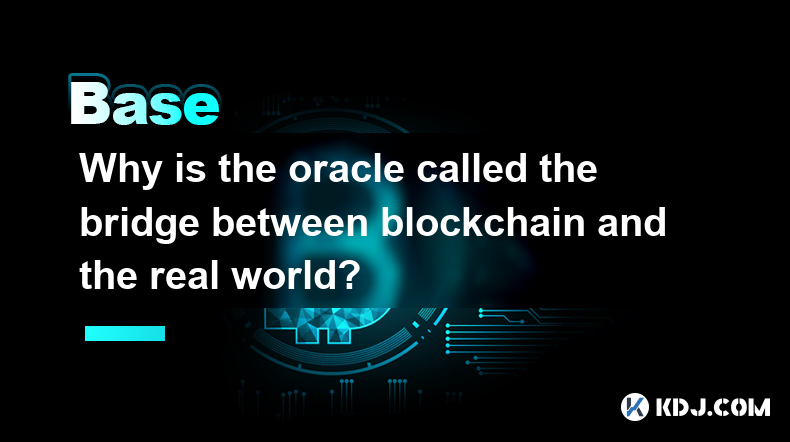
Why is the oracle called the bridge between blockchain and the real world?
Apr 04,2025 at 04:00am
The concept of an oracle in the cryptocurrency and blockchain world is crucial for understanding how these decentralized systems interact with external data. The oracle is often referred to as the bridge between blockchain and the real world because it serves as a vital intermediary that fetches, verifies, and transmits off-chain data to the on-chain en...
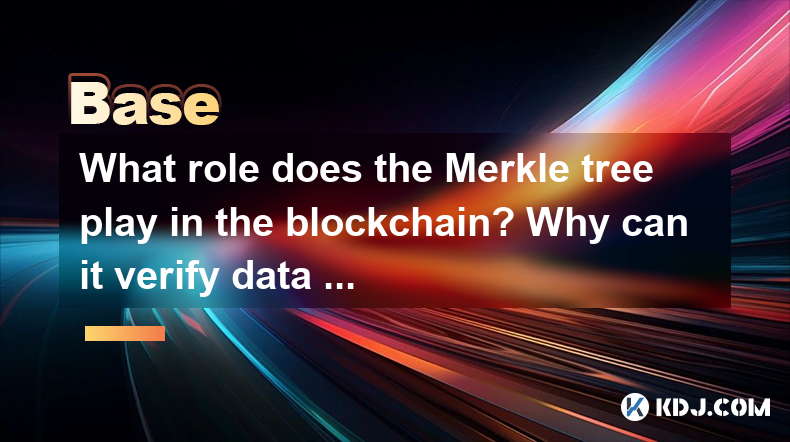
What role does the Merkle tree play in the blockchain? Why can it verify data integrity?
Apr 04,2025 at 01:29pm
The Merkle tree plays a crucial role in the blockchain, primarily due to its ability to efficiently and securely verify data integrity. This article will delve into the structure of a Merkle tree, its implementation in blockchain, and how it ensures the integrity of data. Understanding the Structure of a Merkle TreeA Merkle tree, also known as a hash tr...
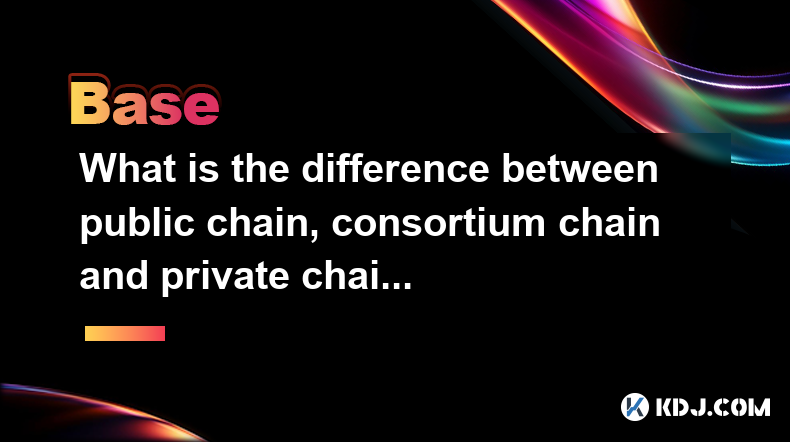
What is the difference between public chain, consortium chain and private chain? What scenarios are suitable for each?
Apr 04,2025 at 09:21pm
In the world of blockchain technology, understanding the differences between public chains, consortium chains, and private chains is crucial for selecting the right type of blockchain for specific applications. Each type of blockchain has its own unique characteristics and use cases, which we will explore in detail. Understanding Public ChainsPublic cha...
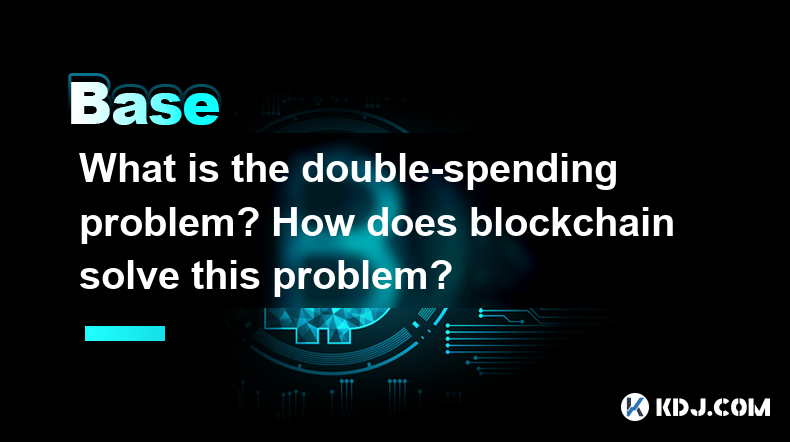
What is the double-spending problem? How does blockchain solve this problem?
Apr 04,2025 at 09:07am
The double-spending problem is a significant challenge in the realm of digital currencies. Double-spending refers to the potential for a digital currency to be spent more than once. This issue arises because digital files, unlike physical cash, can be easily duplicated. If not addressed, double-spending could undermine the integrity and trust in any dig...
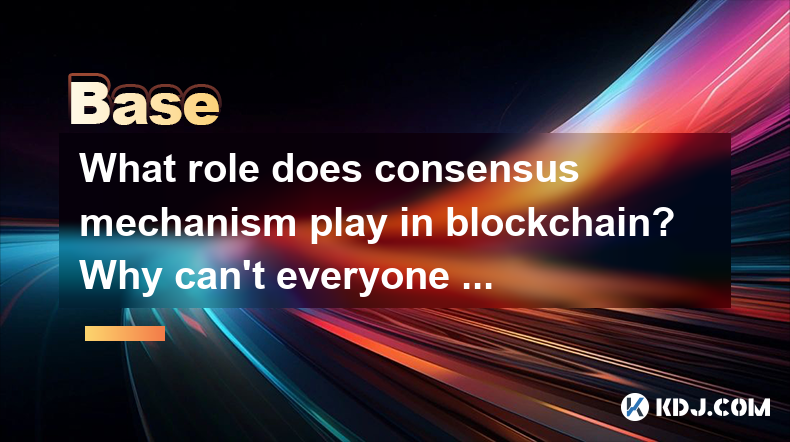
What role does consensus mechanism play in blockchain? Why can't everyone keep accounts?
Apr 05,2025 at 12:29am
The consensus mechanism is a fundamental component of blockchain technology, serving as the backbone for maintaining the integrity and security of the network. It ensures that all participants in the network agree on the state of the ledger, which is crucial for the decentralized nature of blockchain. Without a consensus mechanism, the decentralized sys...
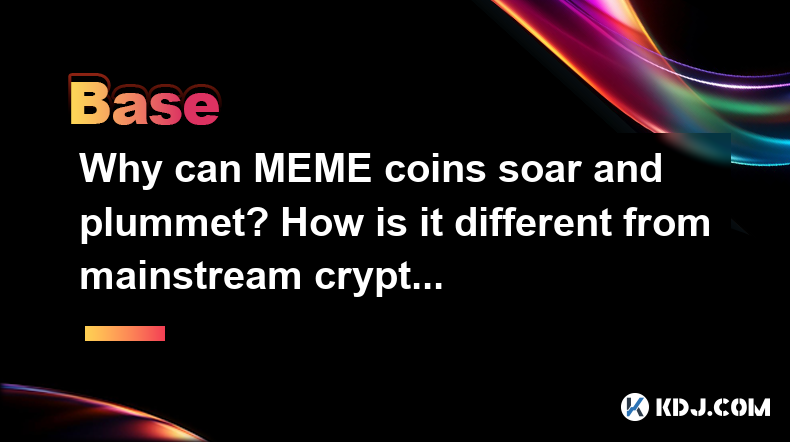
Why can MEME coins soar and plummet? How is it different from mainstream cryptocurrencies?
Apr 04,2025 at 03:07pm
The world of cryptocurrencies is vast and diverse, with a wide range of digital assets that cater to different needs and interests. Among these, MEME coins have carved out a unique niche, often experiencing dramatic price fluctuations that can both soar and plummet in a short period. This phenomenon, while intriguing, differs significantly from the beha...

Why is the oracle called the bridge between blockchain and the real world?
Apr 04,2025 at 04:00am
The concept of an oracle in the cryptocurrency and blockchain world is crucial for understanding how these decentralized systems interact with external data. The oracle is often referred to as the bridge between blockchain and the real world because it serves as a vital intermediary that fetches, verifies, and transmits off-chain data to the on-chain en...

What role does the Merkle tree play in the blockchain? Why can it verify data integrity?
Apr 04,2025 at 01:29pm
The Merkle tree plays a crucial role in the blockchain, primarily due to its ability to efficiently and securely verify data integrity. This article will delve into the structure of a Merkle tree, its implementation in blockchain, and how it ensures the integrity of data. Understanding the Structure of a Merkle TreeA Merkle tree, also known as a hash tr...

What is the difference between public chain, consortium chain and private chain? What scenarios are suitable for each?
Apr 04,2025 at 09:21pm
In the world of blockchain technology, understanding the differences between public chains, consortium chains, and private chains is crucial for selecting the right type of blockchain for specific applications. Each type of blockchain has its own unique characteristics and use cases, which we will explore in detail. Understanding Public ChainsPublic cha...

What is the double-spending problem? How does blockchain solve this problem?
Apr 04,2025 at 09:07am
The double-spending problem is a significant challenge in the realm of digital currencies. Double-spending refers to the potential for a digital currency to be spent more than once. This issue arises because digital files, unlike physical cash, can be easily duplicated. If not addressed, double-spending could undermine the integrity and trust in any dig...

What role does consensus mechanism play in blockchain? Why can't everyone keep accounts?
Apr 05,2025 at 12:29am
The consensus mechanism is a fundamental component of blockchain technology, serving as the backbone for maintaining the integrity and security of the network. It ensures that all participants in the network agree on the state of the ledger, which is crucial for the decentralized nature of blockchain. Without a consensus mechanism, the decentralized sys...

Why can MEME coins soar and plummet? How is it different from mainstream cryptocurrencies?
Apr 04,2025 at 03:07pm
The world of cryptocurrencies is vast and diverse, with a wide range of digital assets that cater to different needs and interests. Among these, MEME coins have carved out a unique niche, often experiencing dramatic price fluctuations that can both soar and plummet in a short period. This phenomenon, while intriguing, differs significantly from the beha...
See all articles





















































































